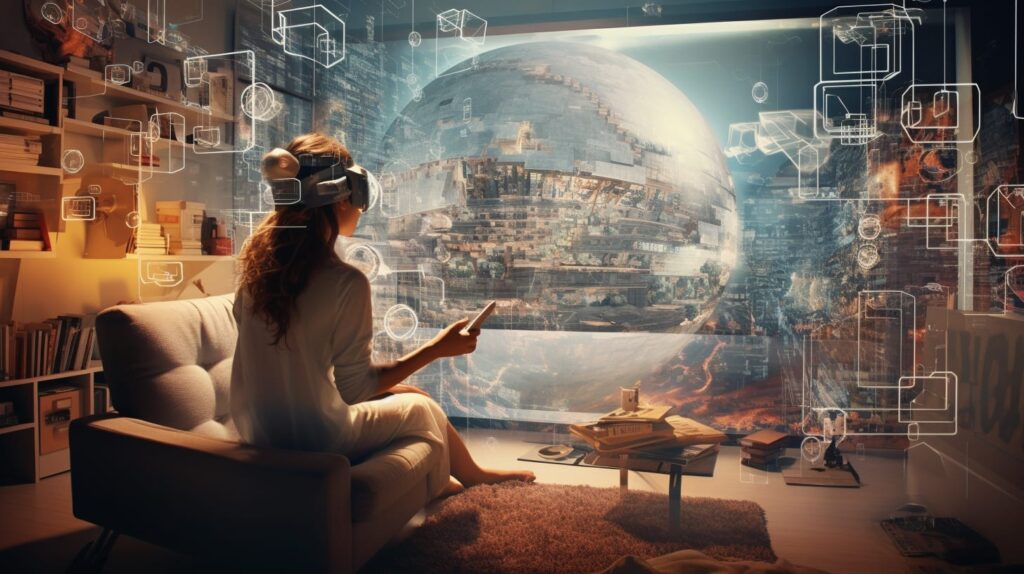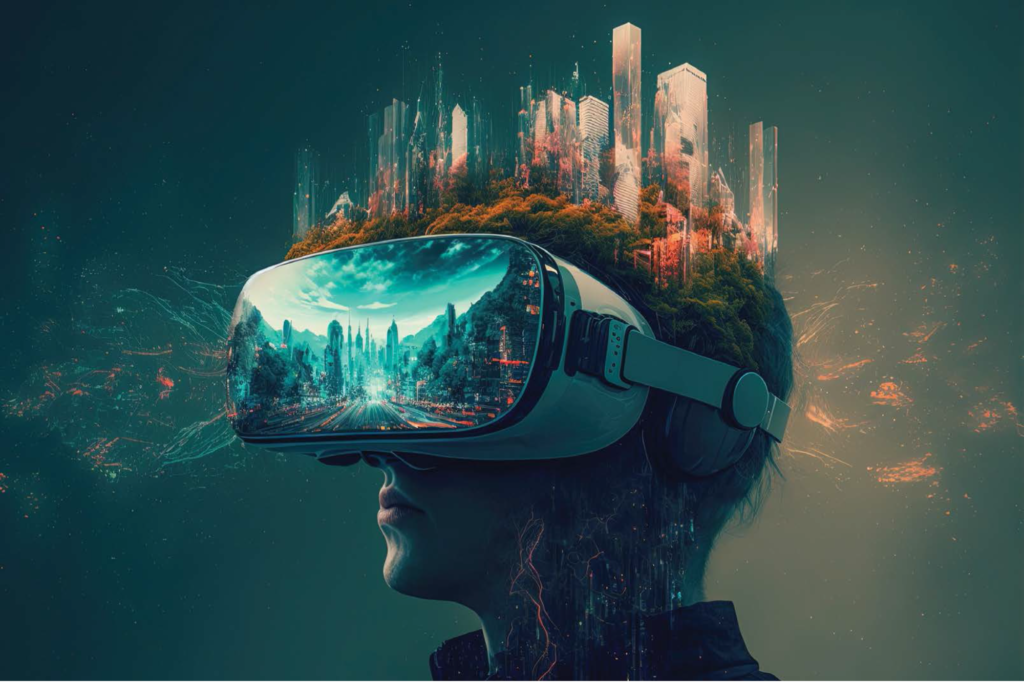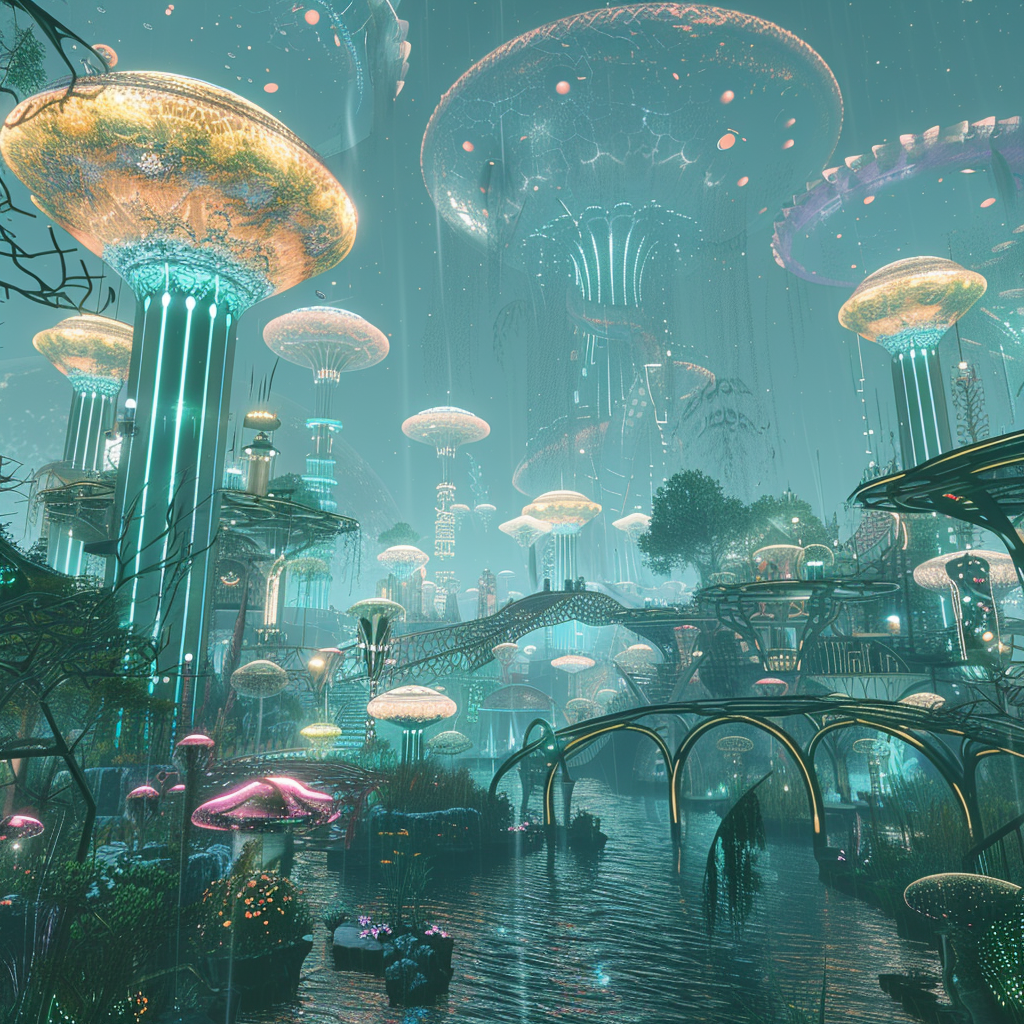How our technology might become our future Utopias
Utopias & Dystopias in the evolving technology

Introduction


Virtual Reality (VR) is a game changer. It promises to transport us to fantastical worlds, break down physical limitations, and connect us in groundbreaking ways. But with such transformative power comes a question: is VR the key to a better future, or a potential escape hatch from reality itself?
This virtual exhibition dives into this fascinating duality. I will showcase the potential of VR has to take over our thoughts of what an utopia is. Imagine a world where limitations dissolve and dreams take form. Think educational journeys through history, or dissecting a virtual frog in science class! VR can even foster empathy by letting us experience life from another’s perspective, promoting understanding and connection. The possibilities for social interaction and entertainment within these virtual spaces are vast, with the potential to build thriving, inclusive online communities.
However, we won’t sugarcoat the potential downsides. The allure of a flawlessly curated virtual world could lead to neglecting the real one. Social isolation and physical inactivity might become concerns if we spend excessive time immersed in VR. There’s a chance economic disparities could widen, with access to sophisticated VR experiences becoming a privilege for the few. Ethical questions also comes up: who controls these virtual worlds? What happens to privacy and free will within them? Could our future tech become a tool for manipulation?
By presenting both sides of the coin, we invite you to critically examine the future of our technology in the aspect of Utopias and Dystopias. Is it a utopia waiting to be built, or a potential dystopia? The answer lies in how we develop and utilize this technology. This exhibition aims to spark a crucial dialogue, prompting you to consider the ethical, social, and personal implications of our future tech as it shapes our world.
How would this even benefit people?


